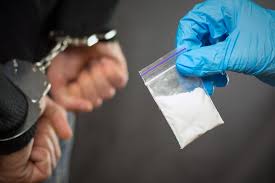California Health and Safety Code 11350(a) plays a critical role in the state’s legal framework concerning controlled substances. This statute specifically targets the possession of narcotics and aims to regulate and restrict the unauthorized possession of these substances. Understanding the specifics of Section 11350(a) is essential not only for Orange County criminal defense attorneys, but also for those charged with the offense, as it outlines what constitutes a violation, the penalties involved, and potential legal defenses.

Definition of California Health and Safety Code 11350(a)
Explanation of the code
California Health and Safety Code 11350(a) makes it illegal to possess controlled substances without a valid prescription. This includes illegal street drugs as well as legal drugs but without a prescription. The law criminalizes simple possession or possession for personal use. This law is aimed at curbing unauthorized possession and potential abuse of various drugs that have been deemed controlled substances due to their addictive properties and potential for abuse. The statute is part of a larger legislative framework designed to regulate drugs within the state to ensure public safety and health. Individuals found in violation of this statute may face criminal charges, which can lead to various penalties including fines and imprisonment. The severity of these penalties largely depends on the type and amount of substance, as well as the individual’s criminal history and specific circumstances surrounding the case.
What the Orange County DA must prove
To convict you the DA must prove five elements beyond a reasonable doubt.
- you possessed a controlled substance,
- you did not have a prescription for the substance,
- you kew of the substance’s presence,
- youknew of the substance’s nature as a controlled substance, and
- there was a usable amount of the controlled substance.
Types of substances covered

Under California Health and Safety Code 11350(a), a wide range of substances are controlled. This includes, but is not limited to:
– Opiates and their derivatives (such as heroin and certain prescription painkillers)
– Cocaine
– Hallucinogens (like LSD and peyote)
– Certain prescription drugs (like hydrocodone, oxycodone, and fentanyl) when not prescribed
This list is not exhaustive, as the law encompasses all substances listed in the federal schedules as controlled substances. It’s crucial for defendants in Orange County to be aware that possession of these substances without proper medical authorization is treated as a serious criminal offense.
Penalties for Violations under California Health and Safety Code 11350(a)

Violations of Health and Safety Code 11350(a) are misdemeanors in California. Under certain circumstances, if you have a prior conviction for a sex crime or a serious felony, simple possession can be charged as a felony. The specific penalties levied can vary depending on a range of factors including the defendant’s criminal record and the circumstances of the case.
Fines
For those convicted under California Health and Safety Code 11350(a), fines are a common penalty. The amount can vary significantly based upon the severity of the offense and other judicial considerations. Typically, misdemeanor charges might attract fines up to $1,000. However, if the offense is elevated to a felony due to certain aggravating factors, the fines can be significantly higher, potentially as much as $20,000. Judges have discretion within these ranges, and fines can vary from one Orange County courtroom to another or from one case to another, based upon the specifics of the situation and the presence of mitigating or aggravating factors.
Jail time/treatment
In addition to fines, up to a year in the Orange County jail is possible for those found guilty of violating California Health and Safety Code 11350(a). However, in most instances, defendants are eligible for some type of drug diversion, which involves treatment instead of jail time. This includes PC 1000 or drug court. In cases where the violation is prosecuted as a felony—such as when the individual possesses a large amount of a controlled substance or has significant prior offenses—the potential jail time increases substantially and can range from 16 months to 3 years in the California state prison.
Potential impact of criminal record
The long-term consequences of a conviction under Health and Safety Code 11350(a) extend beyond immediate fines and incarceration. A criminal record can impact a person’s life in significant ways, including difficulty in finding employment, loss of professional licenses, and problems with securing housing. For non-U.S. citizens, such a conviction can lead to deportation or denial of re-entry into the United States. Given these enduring impacts, it’s essential for those charged with violations of this code to seek competent legal representation from a skilled Orange County criminal defense lawyer to navigate the complexities of the legal process and to potentially minimize the long-term damages of a conviction.
Defenses in Court for California Health and Safety Code 11350(a)

Defending against charges under California Health and Safety Code 11350(a) can be complex, challenging, and nuanced. For individuals accused of possessing a controlled substance, several legal defenses might be available depending on the circumstances surrounding their case. Three common defenses include lack of knowledge, unlawful search and seizure, and possession with a valid prescription or legal authorization.
Lack of Knowledge
One prevalent defense against possession charges under Health and Safety Code 11350(a) is the claim of lack of knowledge. This defense hinges on proving that the accused was unaware of possessing the substance. In legal terms, the prosecution must establish that the defendant knew about the substance’s presence and identified it as a controlled drug. If a person did not know they were in possession of a controlled substance, perhaps because the drugs were placed in their belongings by someone else without their consent or knowledge, this defense could be effectively utilized. Examples of scenarios where this defense might apply include:
– A borrowed vehicle or clothing containing drugs unknown to the borrower.
– Drugs hidden in a shared residence where multiple people could realistically have access.
Unlawful Search and Seizure

The Fourth Amendment of the U.S. Constitution protects citizens against unreasonable searches and seizures by the government. In drug possession cases, this defense is particularly pertinent if the controlled substance was discovered during a search that violated the defendant’s constitutional rights. If law enforcement officials conduct a search without a valid warrant, probable cause, or your consent, your Orange County criminal defense attorney can bring a motion to suppress. Any evidence obtained as a result of an illegal search, including drugs, may be deemed inadmissible in court.
For instance, if the police perform an illegal pat-down search without your consent. Or if drugs are found in the trunk of a car after a police officer opened it without a warrant, probable cause, or the owner’s permission, the criminal defense attorney may argue that the evidence should be excluded due to the unlawful search.
-Similarly, if evidence is obtained from a home or personal electronic devices in violation of privacy rights, such evidence could also be contested. A successful motion by your Orange County criminal defense lawyer may render this evidence inadmissible.
Prescription or Legal Authorization
Possession of certain substances is not illegal if the individual possesses a valid prescription or other legal authorization for those drugs. Under Health and Safety Code 11350(a), it is a legitimate defense to demonstrate that the controlled substance was lawfully prescribed by a licensed health professional. To support this defense, your criminal defense attorney would need to present an actual prescription or medical documentation proving that the possession of the substance was legally justified. Circumstances that might involve this defense include:
– Individuals with a prescription for pain management or treatment of a medical condition that involves controlled substances such as opioids or certain types of stimulants.
– Registered qualifying patients under California’s medical marijuana program who legally possess amounts consistent with state law for personal medical use.
These defenses, when appropriately argued by a skilled Orange County criminal defense lawyer, can significantly impact the outcome of a case under Health and Safety Code 11350(a). They highlight the importance of a comprehensive legal evaluation and the strategic application of defenses based on the specifics of the individual’s situation. If facing charges under this statute, consulting with an experienced criminal defense attorney is crucial to effectively navigate the complexities of the law and to work towards a favorable resolution.

At The Law Office of EJ Stopyro we offer a free and confidential telephonic consultation. Call us today at (949) 278-6353 to schedule your consultation today.
Conclusion
Understanding California Health and Safety Code 11350(a) is crucial for anyone facing charges or involved in legal proceedings related to controlled substances. It spells out specific regulations and punishments but also provides various avenues for defending one’s self in court. Consulting with a knowledgeable Orange County defense attorney can significantly impact the outcomes of such cases, where the complexities of the legal statute meet the specifics of an individual’s circumstances. Always remember, navigating through the intricacies of the law isn’t just about handling the immediate effects of an accusation, but also about protecting future interests and opportunities.
